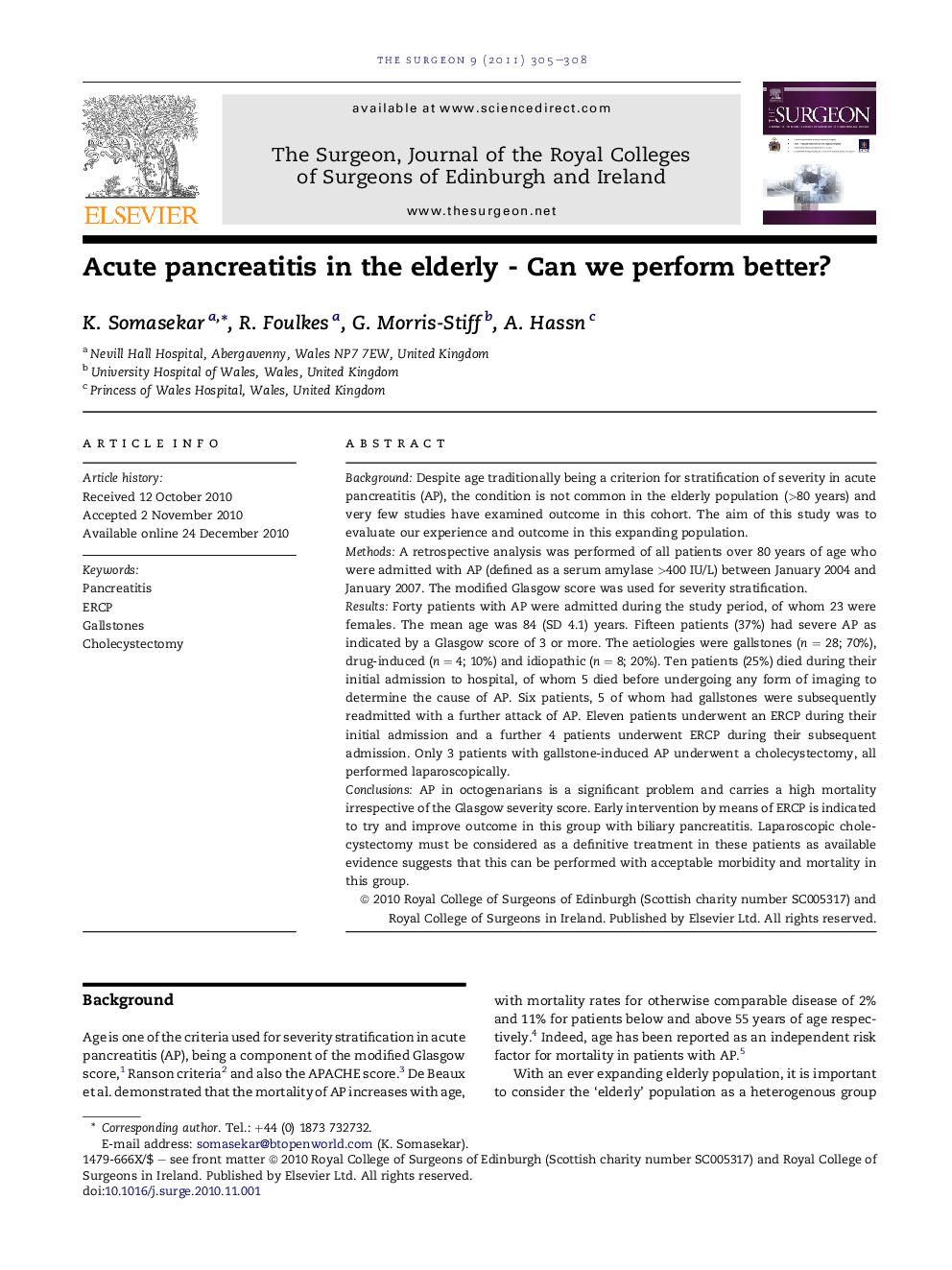| Article ID | Journal | Published Year | Pages | File Type |
|---|---|---|---|---|
| 3178818 | The Surgeon | 2011 | 4 Pages |
BackgroundDespite age traditionally being a criterion for stratification of severity in acute pancreatitis (AP), the condition is not common in the elderly population (>80 years) and very few studies have examined outcome in this cohort. The aim of this study was to evaluate our experience and outcome in this expanding population.MethodsA retrospective analysis was performed of all patients over 80 years of age who were admitted with AP (defined as a serum amylase >400 IU/L) between January 2004 and January 2007. The modified Glasgow score was used for severity stratification.ResultsForty patients with AP were admitted during the study period, of whom 23 were females. The mean age was 84 (SD 4.1) years. Fifteen patients (37%) had severe AP as indicated by a Glasgow score of 3 or more. The aetiologies were gallstones (n = 28; 70%), drug-induced (n = 4; 10%) and idiopathic (n = 8; 20%). Ten patients (25%) died during their initial admission to hospital, of whom 5 died before undergoing any form of imaging to determine the cause of AP. Six patients, 5 of whom had gallstones were subsequently readmitted with a further attack of AP. Eleven patients underwent an ERCP during their initial admission and a further 4 patients underwent ERCP during their subsequent admission. Only 3 patients with gallstone-induced AP underwent a cholecystectomy, all performed laparoscopically.ConclusionsAP in octogenarians is a significant problem and carries a high mortality irrespective of the Glasgow severity score. Early intervention by means of ERCP is indicated to try and improve outcome in this group with biliary pancreatitis. Laparoscopic cholecystectomy must be considered as a definitive treatment in these patients as available evidence suggests that this can be performed with acceptable morbidity and mortality in this group.
